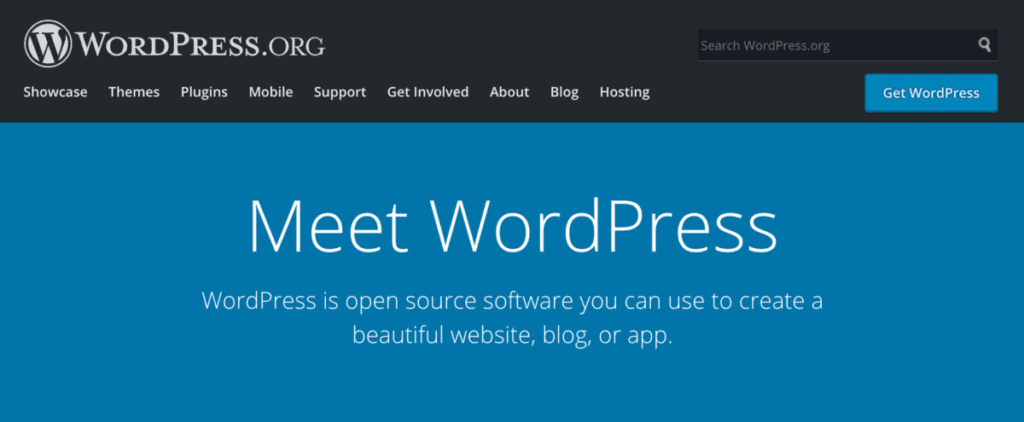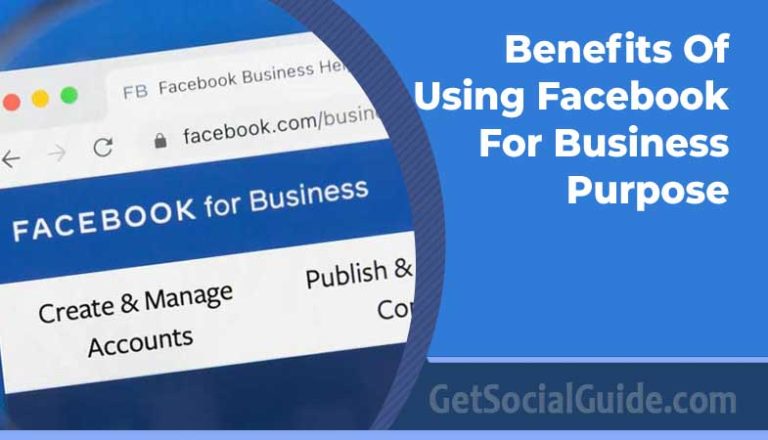Some blogging platforms may be more cost-effective for you, but many aren’t the best if you want to make money from your website. The greatest blogging platforms for generating income will be very different from the free alternatives. You may choose the best blogging platform for you by doing comparisons and learning more about the subject.
Best Blogging Platforms to Make Money
As a new blogger, it’s incredibly simple to become overawed by the options available to you when you first launch your site. You must configure the following:
- a domain name
- best hosting plan
- blogging platform
- blog theme
- etc.
And you should truly decide all of this PRIOR to taking any action. Because the blogging platform and hosting that you select can have an impact on your capacity to make money, we’ve added sections regarding monetizing to this guide. When selecting the best blogging platform, it’s crucial to start by considering the end goal. Let’s first discuss what a blogging platform IS and how it varies from blog hosting before we discuss the finest blogging platforms (because you need both).
What is a platform for blogging (also called a “blog site”)?
Let’s begin by getting a fundamental understanding of how websites work. Every website is made up of countless lines of code that work together to create the website’s design. Every single line of code must be manually written when creating a website from scratch. Fortunately, our software takes care of this for you! Your blog’s “skeleton” or “base” is a blogging platform. It has pre-coded templates that enable you to launch your blog without doing the tedious coding work. Since they all provide free hosting packages, blogging platforms don’t technically cost anything, but you should exercise caution when choosing free blog hosting.
What is blog hosting?
To put your blog “live,” a server is required for all blogs and websites. These servers are found in TONS of blog hosting businesses, which operate exclusively to ensure that your blog is accessible and online. When you choose a blogging platform, they all provide a free hosting plan, but the most of them also have paid packages (called self-hosted plans). Bluehost is the blog hosting service we advise newbies to use the most. Our two blogs reached six figures thanks to it in the first several years. Since there is a free option, why would I want to pay for blog hosting? In general, folks who want a hobby blog and don’t care much about making money are better off using free blog hosting services. Free blogging platforms have a number of restrictions, including:
- being able to monetize ads
- the right to use your domain name
- access to plugins and more blog customization tools storage
- Having use of premium themes
- And more…
The major drawback of free blog hosting is how it interferes with your capacity to make money off of your website.
The 6 Best Blogging Platforms (Blog Sites) for Getting Started
After discussing the six biggest and most widely used blogging platforms, we’ll discuss a few more free blogging platforms.
WordPress

WordPress is the #1 most widely used blogging platform in the WORLD!
WordPress is available in two different versions: WordPress.com (free) and WordPress.org (paid). The remainder of this part will discuss WordPress.org (the self-hosted, paid version), which has access to a LOT more capabilities but has the same restrictions as the free version that we mentioned previously. That you have access to THOUSANDS of plugins that let you personalise your blog in a variety of ways, like adding contact forms, email forms, social media buttons, and much more, is by far the best feature of WordPress.org.
Because other blogging platforms are less popular, there are less plugins, themes, and other customization options available. Let’s examine that from a practical standpoint. When you Google how to add social media buttons or another feature on your blog, the first few pages of results will all be for WORDPRESS plugins; none of the other blogging platforms we’ll cover, Wix, Squarespace, or any other, will be mentioned.
Pros:
- More control over the look of your blog
- Access to a huge selection of themes and plugins to customise your blog
- Excellent customer service and a tonne of articles on using the platform are available.
- As your blog expands, it’s simpler to integrate with most other tools.
Cons:
- A little steeper learning curve than some other blogging sites
- You must take care of your backups and security.
Wix
The software that allows users to drag and drop elements is undoubtedly Wix’s claim to fame. Because of this, it is very easy to use and has a steep learning curve that is much reduced. There is also a free version available, although its functionality is much more restricted than that of the free WordPress version. The free edition of Wix provides very limited opportunities for customization, and it also embeds Wix advertisements directly into your website. If your goal is to generate income, your only real option is to purchase the premium edition of the software.
Pros:
- Drag and drop software makes it highly user-friendly for beginners.
- Fewer learning curves when developing your webpage
Cons:
- A much smaller selection of themes and third-party plugins
- Plans lack flexibility because there are few hosting possibilities.
- If you wish to create an online store, it will cost more.
- Free edition comes with Wix advertisements on your website and has very few features.
- WordPress has a lot fewer software integrations.
While Wix is more user-friendly than WordPress, its subscription plans are significantly more expensive and ultimately offer less customization options. Wix makes it considerably simpler to create and design a blog, but the limits of its plugins and other software connections will ultimately hinder your growth.
Squarespace
Due of how much Squarespace has stepped up their promotion, you have undoubtedly heard a lot more about them recently. I am aware since I have seen it everywhere on Facebook and YouTube. Currently, their ambassador is Keanu Reeves, aka the most likeable guy ever. What a brilliant move! Similar to Wix, Squarespace also offers drag-and-drop software, making their user interface ideal for newcomers without any prior experience in website design or coding.
Pros:
- software that is simple to use and uses drag and drop
- outstanding for small businesses
Cons:
- a much smaller selection of themes and third-party plugins
- Adding eCommerce stores and other add-ons to plans is more expensive and less flexible.
- Significantly less software integrations than WordPress Costly compared to the previously listed options
Weebly
Weebly is another another website builder that utilises a drag-and-drop interface; but, in comparison to Wix and Squarespace, it is not as well-known and offers less customization choices.
Pros:
- Beginner-friendly, drag-and-drop software
Cons:
- There are very few available software integrations.
- An order of magnitude higher in cost
Instead of following the path of the software that allows you to drag and drop elements, you should go with Wix. You get a lot more for your money thanks to the increased number of available options and personalization settings.
Other Free Blogging Platforms
Even though the free blogging platforms that are going to be covered below will all have the same limits as other free blogging sites, we thought that it was still important to discuss them and make comparisons between them in this post.
Blogger

Because Google is the company that owns Blogger, it is one of the few free blogging platforms on which users can install Google AdSense and make advertising revenue from their sites. You will also get access to Google Analytics, which allows you to monitor the statistics of your website. You will, alas, continue to struggle with the same issues, such as restricted access to third-party software and plugins. Because Blogger isn’t updated all that frequently, the software that is readily available is sometimes more prone to being out of current and less reliable. Even while there is the potential for advertising revenue, it is still considerably more difficult to monetize your site using Blogger. There are no paid hosting choices available, and you cannot use your own domain name (instead, the URL of your blog will include the suffix “.blogspot.com”).
Tumblr
A fantastic area to connect with other bloggers is Tumblr, where information is frequently “re-posted.” Because it functions partially as a “social” media platform itself, this gives a second opportunity to have your material seen that other platforms lack. However, Tumblr’s design options are incredibly constrained. There is only a small selection of themes or templates available to you. Tumblr’s design and technical restrictions make revenue generation much more challenging. The ability to buy your own domain name to use with your site is one advantage Tumblr offers over Blogger.
Medium
Because it is a community of authors and bloggers, Medium is a quite different blogging platform from the others that we have so far discussed. While setting up a basic web page on Medium is simple, it’s not the best platform for people trying to launch an online business. Medium is more of a space where you can write, share your ideas, and interact with other people. Your website cannot run advertisements, and you do not own your audience. On a conventional blogging platform, you control your social network profiles, generate traffic to your blog, and can create an email list. You don’t own any of these traffic sources with Medium, nor do you have access to the customary list-building tools.
One of the most well-liked online publishing and blogging platforms is Medium. With a simple and elegant design, it enables anyone to effortlessly create and publish a blog article. Because of its Partner Program, which enables authors to be compensated for posts made on the platform, Medium is well-liked among writers. Because it is arguably the best blogging platform for writers who simply want to publish, grow an audience, and get paid,
Medium is exceptional. Medium offers writers a built-in audience and pays authors based on the total amount of member reading time. Additionally, it is cost-free and takes all the work out of creating your own website. Having said that, not every blogger will find Medium to be the most lucrative blogging platform. The bloggers that succeed on Medium most frequently do so by using the platform to grow their readership, make a little money through the Partner Program, and then eventually move to their own platform (such as WordPress or Ghost) or find another means to monetize their content (subscription newsletters with Substack).
WordPress
One of the most widely used open-source systems worldwide is WordPress. It is frequently employed as a blogging platform as well as a content management system (CMS) for websites. WordPress is appealing because it doesn’t require any technical expertise or experience to utilise. Bloggers, small business owners, and even Fortune 500 businesses use WordPress. Compared to “premonetized” blogging sites like Medium, Vocal.Media, and HubPages, it takes more time and work, but it provides bloggers genuine ownership of their content and removes the possibility of being deplatformed or negatively impacted by algorithm changes on these other platforms. Due to its numerous established collaborations with web hosting companies like Bluehost, WordPress is very simple to utilise. Because of this, creating a self-hosted blog is considerably simpler than it was in the past.
Ghost
Open source blogging software called Ghost is used by authors and journalists. It has a clean and uncluttered user interface that makes blogging easier for its users. Ghost has built-in SEO plugins and tools that make it simple for users to optimise their content. Both professional editors employed at major media companies and inexperienced bloggers use the Ghost platform. Ghost differs significantly from other blogging platforms due to the variety of services you may readily provide. In a world of blog hybrid-products like paid newsletter subscriptions, membership websites, gated digital material, providing courses, and selling digital goods, this is becoming more and more crucial.
Substack
A writer can easily launch an email newsletter with Substack that generates revenue from subscriptions. Web and newsletter publishing solutions designed specifically for premium subscriptions are offered by Substack. Because it offers an all-in-one solution for writers wishing to monetize their newsletter, Substack is well-liked by many writers. Through Substack’s email distribution mechanism, audio makers can now monetize and distribute their podcasts. Substack is actually a combination of the two formats, despite the fact that many bloggers identify it more with newsletters than with blogging. You may publish newsletter posts on your Substack newsletter domain, just like a typical blog post, and send subscribers newsletter posts.
Vocal.Media
Vocal. Media serves as a venue for promoting, identifying, and rewarding creators. Vocal gives authors, musicians, filmmakers, artists, and all other forms of creatives the narrative resources and active communities they need to get recognised and rewarded for their work. Vocal’s features were created to help writers monetize their writing and increase the audience for content sharing. Vocal offers writers several financial benefits. First, Vocal compensates authors according to how many people “read” their works.
Second, Vocal also promotes fan recommendations. Through tipping, your readers can make small payments for your content directly into your Stripe account.
HubPages
HubPages is a website that shares revenue with its users and features user-generated content. It was created in 2006. In 2016, the business strategy of the organisation expanded from a single location to include multiple locations. The platform that enables you to publish articles and gives you the opportunity to make money from those articles, the amount of which is contingent on the number of times such articles are viewed. Page views and the impact that your post makes to the success of display advertisements are the two primary metrics that are utilised in the calculation of writer compensation on HubPages.
NewsBreak
Local news aggregation and digital publishing platform NewsBreak. The NewsBreak features mobile app prominently displays the majority of the content from this platform. With a network of more than 10,000 content providers, NewsBreak today boasts 23 million monthly readers. According to Sensor Tower, the app has been installed on more than 50 million iOS and Android smartphones worldwide, with more than 99 percent of those users being Americans. Despite not calling itself a “blogging” platform, NewsBreak actually is. There is a preference for timely, local news on NewsBreak compared to many of the other platforms on this list, which is the fundamental distinction between them.
Tumblr
Although Tumblr has had a sizable readership for years, there hasn’t always been an obvious option for content creators to make money off of their work. With Post+, the platform’s initial attempt to let users monetize their content, Tumblr has now entered the fray.
Using Tumblr’s Post+, content creators can decide which of their works, such as original artwork, personal blog posts, or Destiel fanfiction, should be behind a paywall. With further tiers at $5.99 and $9.99, creators can choose the pricing for their work that is available solely to subscribers starting at $3.99 per month. Tumblr will take a 5% portion of the money made by creators.
Wattpad
Although Tumblr has had a sizable readership for years, there hasn’t always been an obvious option for content creators to make money off of their work. With Post+, the platform’s initial attempt to let users monetize their content, Tumblr has now entered the fray.
Using Tumblr’s Post+, content creators can decide which of their works, such as original artwork, personal blog posts, or Destiel fanfiction, should be behind a paywall. With further tiers at $5.99 and $9.99, creators can choose the pricing for their work that is available solely to subscribers starting at $3.99 per month. Tumblr will take a 5% portion of the money made by creators.
Steemit
Steemit is a platform for blogging that also includes a social network and cryptocurrency as one of its features. It is similar to Reddit in that it gives users the ability to upvote or downvote articles, follow topics, participate in discussions, and post their own original content. In addition, users can contribute their own original content. On the other hand, users also have the opportunity to earn a portion of the platform’s income in the form of the Steem cryptocurrency. People who make content, those who filter material, and commenters all have the opportunity to earn money from their contributions.
Write.as
Create.as is a platform that doesn’t have any extra bells and whistles, thus it’s perfect for writers who just want to write and publish their work without any fuss. It provides straightforward features and techniques that are focused on stimulating the fundamental act of writing. Users have the option of remaining anonymous while writing or creating a profile in order to produce a variety of content. This content can range from brief blog posts to in-depth reports. The author has the option of hiding their work from the public on Write.as, sending the direct URL to family and friends, or publishing it on other sites.
Blogger
One of the simplest tools for beginning a blog is Blogger. It is available for free usage and enables writers to rapidly and easily express their ideas. Users are able to add photographs, videos, and other content to blog entries, which are published with a time stamp. Since Blogger is a Google property, anyone with a Gmail account may sign up instantly and for no cost. Users have the option of using one of several templates or starting from scratch to construct their blogs. Users have the option of making money off their blogs by using AdSense.
Twitter might not be regarded as a blogging medium by many writers, similar to Tumblr. But as blogs have developed to include more than just a single article-style post, Twitter, a micro-blogging site, is making significant headway among creators of the passion economy. Twitter is testing a feature called Super Follows that would let users charge followers for access to additional material. That could be more tweets, membership in a group for the community, a newsletter subscription, or a badge displaying your support. According to Twitter, this enables publishers and creators to get direct payments from their customers.
Conclusion
To summarise our blog platform comparison… WordPress.org + a paid hosting package (like Bluehost) is the only way to start and grow a blogging business. We recommend Bluehost since they provide 24/7 service and a good reputation. Since 2+ years, we’ve used it. Bluehost plans include WordPress.org and a free domain. This blogging platform and hosting package offers dozens of themes, plugins, and software integrations to customise and monetise your site. If you don’t start with WordPress, you’ll switch later.
Writers have several options for the greatest money-making blogging platform. If you choose one of the above blogging platforms, your chances of making money online will increase. Take our Medium Writing Course or Substack Newsletter Course to become a successful blogger. You can also subscribe to our newsletter, Blogging Guide, for additional digital publishing insights.
Blogging begins with your platform. In some circumstances, you may choose a self-hosted blog (like WordPress or Ghost) or a blogging platform like Medium, Vocal, or HubPages. These are just a few ways bloggers can generate money. In 2021, blogging has changed even further, and so has a blogging platform. Bloggers can publish their work on micro-blogging sites that just incorporated paid alternatives (Twitter or Tumblr). Hybrid blogs offer more than blogging tools (such as newsletter featured offered by Substack). So many blogging platforms make it hard to choose one. This article discusses making money from blogging.






